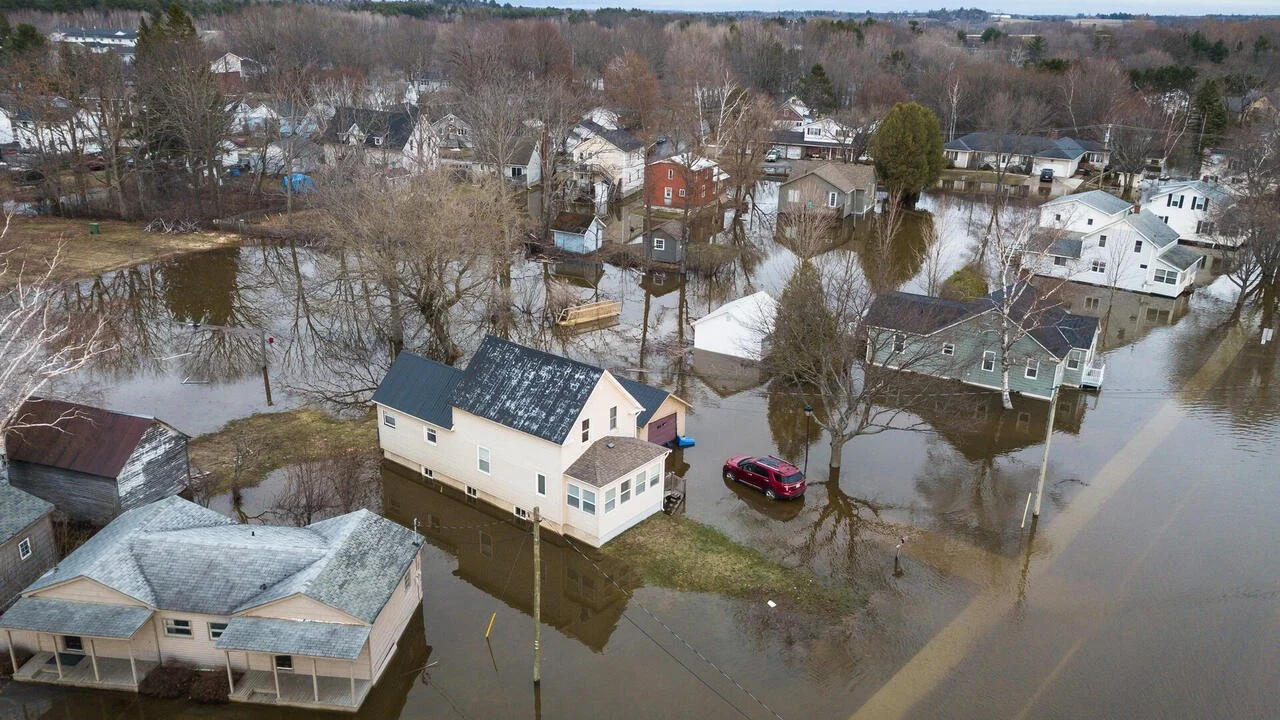The controversial Canada-U.S. oil and gas conduit known as Line 5 could be facing its toughest challenger yet: the very watershed the pipeline's detractors are trying to protect. Spring flooding has washed away significant portions of the riverbank where Line 5 intersects Wisconsin's Bad River, a meandering, 120-kilometre course through Indigenous territory that feeds Lake Superior and a complex network of ecologically delicate wetlands.
New report turns to nature to limit Canada's costliest climate impact – flooding
The need to limit flood risk in Canada is urgent, with approximately 1.5 million homes, representing 10 per cent of the Canadian residential housing market, in high-risk zones where they are ineligible for flood insurance. A new CSA Group report, authored by the University of Waterloo Intact Centre on Climate Adaptation, provides practical guidance for federal, provincial, local, and Indigenous governments to tackle river flooding.
Getting hands-on for habitat
When it comes to conservation education, there’s no better setting than outdoors in nature. Thanks to an exciting new partnership between Ducks Unlimited Canada (DUC) and Dr. Martin LeBoldus Catholic High School, hundreds of Regina students will have the chance to do just that. DUC and Regina Catholic Schools are pleased to announce the launch of the Regina Wetland Centre of Excellence (WCE), the 27th WCE in Canada and only the second in Saskatchewan. This innovative program will help Regina students become conservation leaders and environmental stewards through hands-on and experiential wetland education.
Canada invests more than $585,000 in Georgian Bay Biosphere Reserve to increase biodiversity conservation in Ontario
Canadians depend on nature for clean water to drink and air to breathe, food to eat, and quality spaces to enjoy the outdoors. Conserving nature is vital to protect species at risk, combat climate change, and build a strong, sustainable economy. Today, the Parliamentary Secretary to the Minister of Environment and Climate Change, Julie Dabrusin, attended a turtle release at the Georgian Bay Biosphere Reserve on behalf of the Minister of Environment and Climate Change, the Honourable Steven Guilbeault. At the event, she announced that the biosphere reserve is receiving more than $585,000 over three years from Canada's Enhanced Nature Legacy. These funds will support the biosphere reserve's biodiversity conservation efforts and support Canada's goal to conserve 25 percent of lands and inland waters by 2025, working toward 30 percent of each by 2030.
City planners turn to nature to combat Vancouver's rising sea levels
Vancouver's waterfront has taken a beating in recent months. Storms have left part of the seawall badly damaged and there's a barge stuck on a beach in English Bay. As climate change and rising sea levels continue to cause problems for coastal communities and their infrastructure, a new initiative from the City of Vancouver is aiming to get ahead of the issue.
Boswell: Reimagining the Rideau — Ottawa's urban respite for the soul
I’m up to my knees in water, socks and sneakers submerged — why not? — a few hundred metres west of where Billings Bridge crosses the Rideau River. Not far from a busy, noisy, fumy stretch of Bank Street that typifies much of urban Ottawa, I’m stepping carefully over stones covered in seaweedy slime, immersed in a world of fish and frogs and dragonflies, between mainland Old Ottawa South and my magical destination: a small, unnamed, kidney-shaped island just off the Rideau’s north shore.
Federal promises to expand the protection of land and water are empty without budget commitments
The federal government is hard at work finalizing a budget that will underwrite our path forward out of the pandemic as a country. That's why 50 women leaders from diverse regions and sectors, and across Indigenous, Black, racialized and LGBTQ2IS+ communities, are writing to Finance Minister Chrystia Freeland this week to remind her that nature's recovery is essential to our own.
From wastelands to conservation: Why Alberta needs to start thinking about its wetlands
Tuesday marks the 50th anniversary of an international agreement to protect wetlands around the globe, and this may get you thinking what is so important about wetlands. For awhile they were looked at as wastelands, but over the past few decades, science has shown just how important these areas are. Dan Kraus, a senior conservation biologist with the Nature Conservancy of Canada, says wetlands were the first habitat to have been protected through a global agreement.
Back to top Op/Ed: Marking 50 years of wetland conservation and loss
Fifty years ago, nations gathered to create the world’s first global agreement to conserve a habitat. This had long been undervalued, and as a result was rapidly disappearing. Fifty years ago, there was a global call to action to save our wetlands. On February 2, 1971, the Convention on Wetlands of International Importance was adopted in Ramsar, Iran. Often referred to as the Ramsar Convention, its purpose was to stop the worldwide loss of wetlands. Today, 171 countries, including Canada, are parties to the convention. The Ramsar Convention has helped many wetlands. More than 2,400 wetlands around the world have been designated as Ramsar Wetlands of International Importance. Canada has 37 Ramsar sites, including two Nature Conservancy of Canada helps protect in B.C., the Columbia Wetlands and in Creston Valley. World Wetlands Day marks the signing of the Ramsar Convention and is a day to highlight the importance of wetland conservation Despite a global agreement and a special day of recognition, we have not been kind to wetlands over the last half century. Over the past 50-years, over one-third world’s remaining wetlands have been lost. They continue to disappear at a rate faster than forests, and the loss is accelerating.










